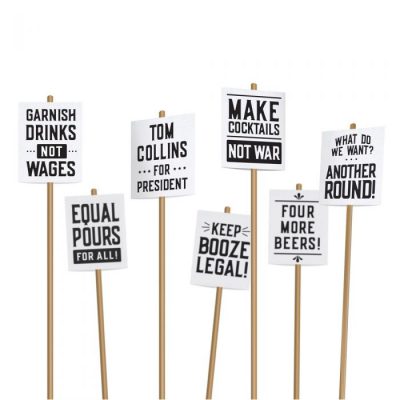I read this stuff about the colonial aspects of polynesian pop with great interest and am on the fence, accepting points of both views. One thought that spontaneously comes to my mind is that Tiki as a religious symbol was replaced with the cross on the islands, decades before people chose it for the design of cocktail mugs. If I abandoned mock south pacific references tomorrow and should I by a twist in the time-room-continuum then end up in the Marquesas wouldn’t I still be an atheist trying to convince them to let go of all religions, which maybe made them easy prey in the first place? Of course I realize that religious symbols are cultural items at the same time, thus relevant to atheists as well.
But what else could be questioned? I would like to make a list of things in the realm of modern Tiki culture and Polynesian pop.
- rum based drinks – caribbean origin, colonial slave economies
- time of creation mid 20th century – time of imperial militarization of the pacific
- floral print fabrics – originated from Japanese print making, marketed to basically white audiences from the go.
- island and south east Asian staff – colonial as it gets in western locations
- room decorations including tapa cloth and carvings – pacific origins of the design with potential of religious and cultural hurt
In this list item 3 is clearly innocent in my book.
For 1 I think if the rum had to go, shop could be closed down right away. So, how much does the number of tides come and gone since the days of slavery on sugar plantations make a difference?
Item 2 is not valid to me, because as Europeans we don’t make a connection between the pacific islands and WWII until we are made aware of it, which does not happen in our Tiki bars. Meaning to say we explore on our own dime, not the defense budget. So what is a US bar to do? Maybe have no WWII references in favor of Jack London, whalers and .. traders? I mean the theme is not really time based per se, make the best of it!
3 – The aloha shirt is a symbol of labor migration from Asia to the Pacific, not of colonialism.
4 – it has been mentioned elsewhere that this is providing jobs for these people, and this is a horrible way of seeing it, since that argument is normally used for legitimizing atrocities like arms and fossil fuel engine manufacturing, or overseas low wage work.
The room decorations 5 – if done properly and not comically, will help with the escapism. Which, as I understand the discourse right now, is not being considered a bad thing. One could consult indigenous or anthropologist people to make sure the decor is fine for the use in a cocktail bar.
I leave out music. All good music is pulling from places near and far, combining and making new connections. This is why I didn’t realize a problem earlier because I only ever saw and heard the enriching aspects of cultural cross pollination.

